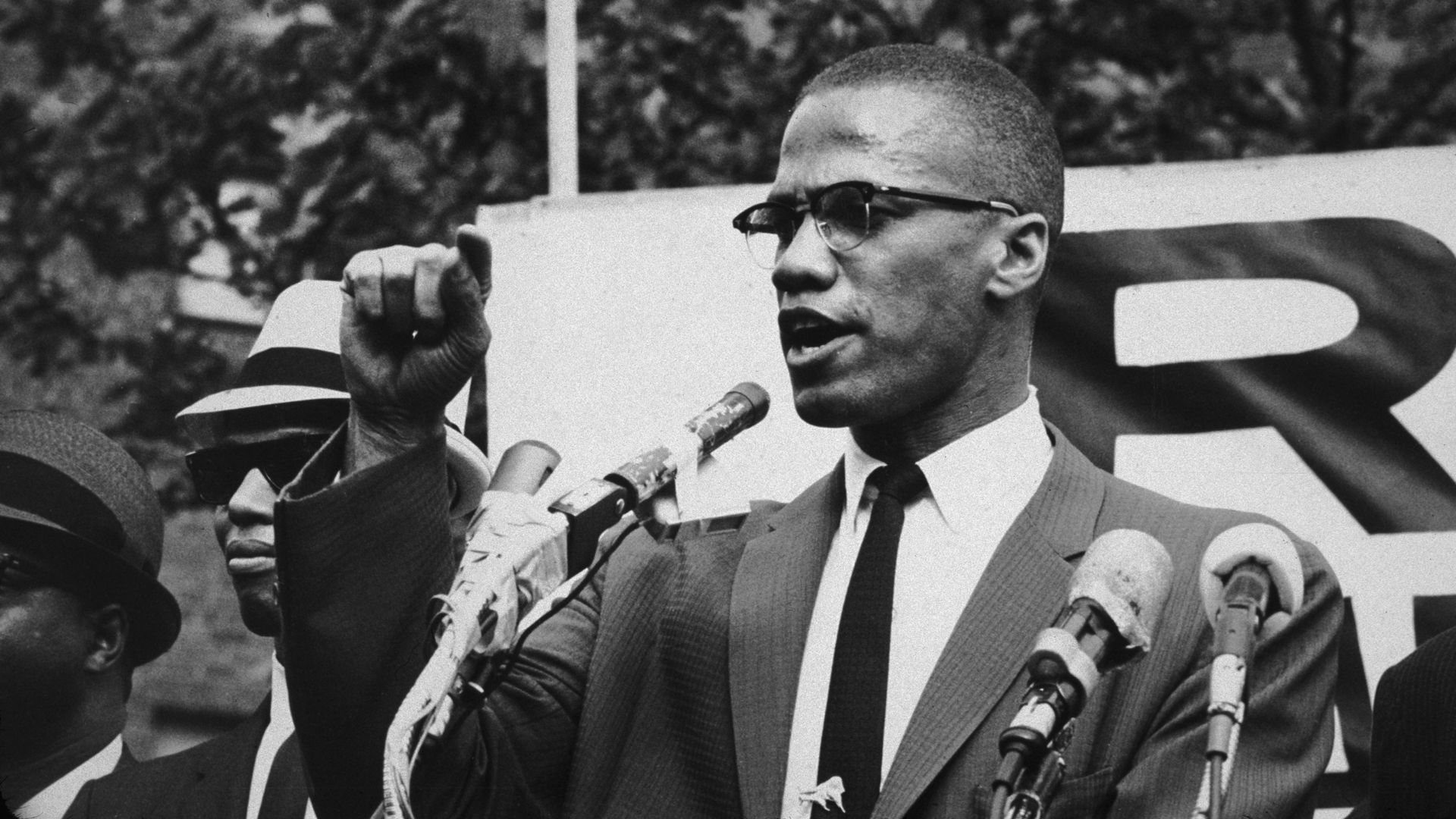Malcolm X's Latino connections
Add Axios as your preferred source to
see more of our stories on Google.

Malcolm X. Photo: Bob Parent/Hulton Archive/Getty Images
Black civil rights leader Malcolm X rarely mentioned U.S. Latinos during his time as an outspoken civil rights advocate, but new information shows Latinos helped shape his experiences and upbringing.
The big picture: Malcolm X, later known as el-Hajj Malik el-Shabazz, was instrumental in shaping the narrative about people of color in the U.S. and the nation's legacy of discrimination, yet Latinos are often excluded from that story.
Driving the news: Two men convicted of killing Malcolm X in 1965 were exonerated after spending decades in prison, following the Netflix docu-series "Who Killed Malcolm X?" that questioned their conviction.
- Malikah Shabazz, one of the youngest daughters of Malcolm X and his wife Betty Shabazz, was found dead earlier this month in Brooklyn, N.Y. Authorities said her death didn't appear to be suspicious and may be related to food poisoning.
- Earlier this year, the family of Malcolm X released a letter purportedly written by a now-deceased police officer alleging that the New York Police Department and FBI were behind his assassination.
Catch up fast: Malcolm's mother, Louise Little, was born in the West Indies island of Grenada and was a fluent Spanish speaker. She wrote articles for newspapers linked to Jamaican and Black nationalist Marcus Garvey.
- His family moved to Omaha, Neb., Milwaukee, Wis., and Lansing, Mich., in areas linked to the migration of Mexican American migrant farmworkers.
- According to the Pulitzer-prizing winning biography, "The Dead Are Arising: The Life of Malcolm X," by the late Les Payne and Tamara Payne, a young Malcolm learned to grow better marijuana from Mexican migrants in Lansing.
- "Malcolm befriended immigrants up from Mexico who brought along their seeds and planted the weed in vacant lots along the noncommercial plants growing in the wild," the authors wrote. He'd grow it to sell for income.
The intrigue: Later as a street hustler in Harlem, Malcolm worked in an environment along with Puerto Rican and Cuban migrants but said little of those experiences in his autobiography.
Yes, but: As a convert to the Nation of Islam, Malcolm X didn't acknowledge in his Black nationalist speeches the struggles of Puerto Ricans and other Black Latinos in connection with the legacy of slavery.
- In one television appearance in 1963 about demands the federal government help all children of color, he falsely claimed, “Puerto Ricans weren’t enslaved. This is a problem that stems from slavery and this compensation comes to people who were enslaved by the white man for 400 years.”
- “The Puerto Ricans don’t even fit into this picture…the problem is a Negro problem,” he said.
Reality Check: Puerto Rico was a Spanish colony founded in part the foster the African slave trade in North America, and many Puerto Ricans in the U.S. are descendants of enslaved people.
Don't forget: During Malcolm X's time in the Nation of Islam, most of the country outside of the American Southwest knew very little about the legacy of discrimination and racial terror Mexican Americans faced.
- He didn't engage with Mexican American civil rights leaders in Houston and Los Angeles and died before the more racial Chicano Movement developed.
Be smart: Chicano Movement and Puerto Rican Young Lords activists would adopt some of Malcolm X's anticolonialist and nationalist philosophies about self-determination.
- Chicano leaders José Angel Gutiérrez, Rodolfo Gonzales, and Reies Lopez Tijerina would give speeches influenced by Malcolm X and would adapt their language to suit Latino audiences seeking civil rights.
